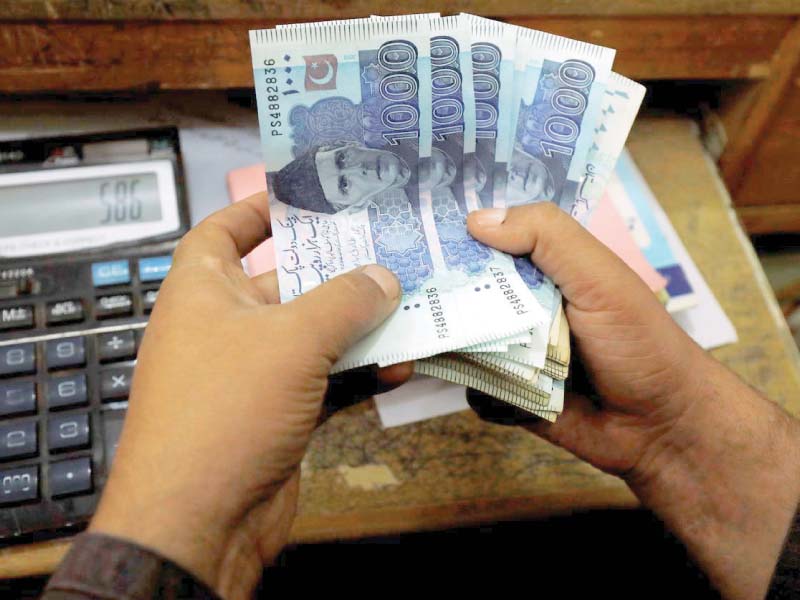
Minister for Economic Affairs Hammad Azhar’s comments came amid increasing criticism of the government for adding Rs7.6 trillion to the public debt in last fiscal year 2018-19 - a surge of 31.3%.
PM opted for IMF deal despite another option: Umar
The Rs7.6-trillion increase in public debt is far higher than the estimated budget deficit of nearly 9% of gross domestic product (GDP) even after taking into account the impact of steep currency depreciation on the stock of external public debt.
“It (is) no mystery at all; Rs3 trillion is the devaluation effect on the old debt stock that the PML-N used to say is a notional number; Rs1.2 trillion is used for increasing cash balances of the federal government with banks and remaining external and internal debt is lesser than preceding years,” tweeted the minister on Thursday evening.
However, it is rare that the Ministry of Finance purposefully borrows to build the cash buffer as usually the borrowing is authorised to meet certain expenditures.
“The Pakistan Investment Bond (PIB) repayments will begin soon and we needed a buffer for system stability at a time when the government was shifting policy from debt rollover to debt repayment,” said Azhar while talking to The Express Tribune.
The minister said Rs1.2 trillion had been used for building “adequate cash reserves”. Under the IMF programme, the government could not borrow from the central bank for budget financing and therefore it needed a cushion for timely repayment of debt, he said.
In the previous fiscal year, the government excessively used the central bank financing window to meet its pressing needs, which the IMF has now permanently shut down - at least for the 39-month loan programme.
The government borrowed Rs1.2 trillion through the Market Treasury Bills (MTBs) and placed the amount with the central bank for future payments, said an official of the finance ministry. The money had not been placed with commercial banks, he claimed.
The Rs1.2 trillion is equal to nearly 16% of the public debt that the government added in the last fiscal year. As per the economic affairs minister’s claim, another 40% addition to the debt was the result of steep currency devaluation.
The minister insisted that interest rate hikes and currency depreciation were the only solutions to the yawning current account deficit that in 2017-18 widened to $19 billion.
The central government’s total debt surged to Rs31.8 trillion with the net addition of Rs7.6 trillion from July through June of the last fiscal year, reported the SBP last week. There was a surprising surge in the domestic debt, which increased to Rs20.7 trillion, an addition of Rs4.3 trillion or 26.3% in the last fiscal year. The long-term debt stock more than doubled within a year, which swelled from Rs7.5 trillion to Rs15.2 trillion by the end of June 2019.
The more intriguing upward movement, of 26.3%, was in the size of domestic debt. Its ratio in relation to GDP at the end of the year rose to 53.8% from 47.7% a year earlier, an increase of over six percentage points in just one year, according to an article jointly authored by former finance minister Dr Hafiz Pasha and ex-central bank governor Shahid Kardar.
Pakistan, IMF strike $6 billion deal
The authors argued that till March 2019 the increase in domestic debt was largely proportionate to the budget deficit. But after that, there had been an intriguing sharp escalation in the outstanding domestic debt from Rs1.87 trillion to Rs4.31 trillion at the end of June 2019 - an astronomical increase of Rs2.6 trillion in only three months, they wrote in the article published in an English daily newspaper.
As part of the IMF deal, the federal government also restructured its short-term domestic debt by quietly issuing long-term PIBs to the central bank. These bonds were not issued through an auction and instead the government gave these long-term instruments directly to the SBP.
Published in The Express Tribune, August 16th, 2019.
Like Business on Facebook, follow @TribuneBiz on Twitter to stay informed and join in the conversation.
1725784957-0/Tribune-Pic-(17)1725784957-0-405x300.webp)
1724760612-0/Untitled-design-(12)1724760612-0-165x106.webp)















COMMENTS
Comments are moderated and generally will be posted if they are on-topic and not abusive.
For more information, please see our Comments FAQ